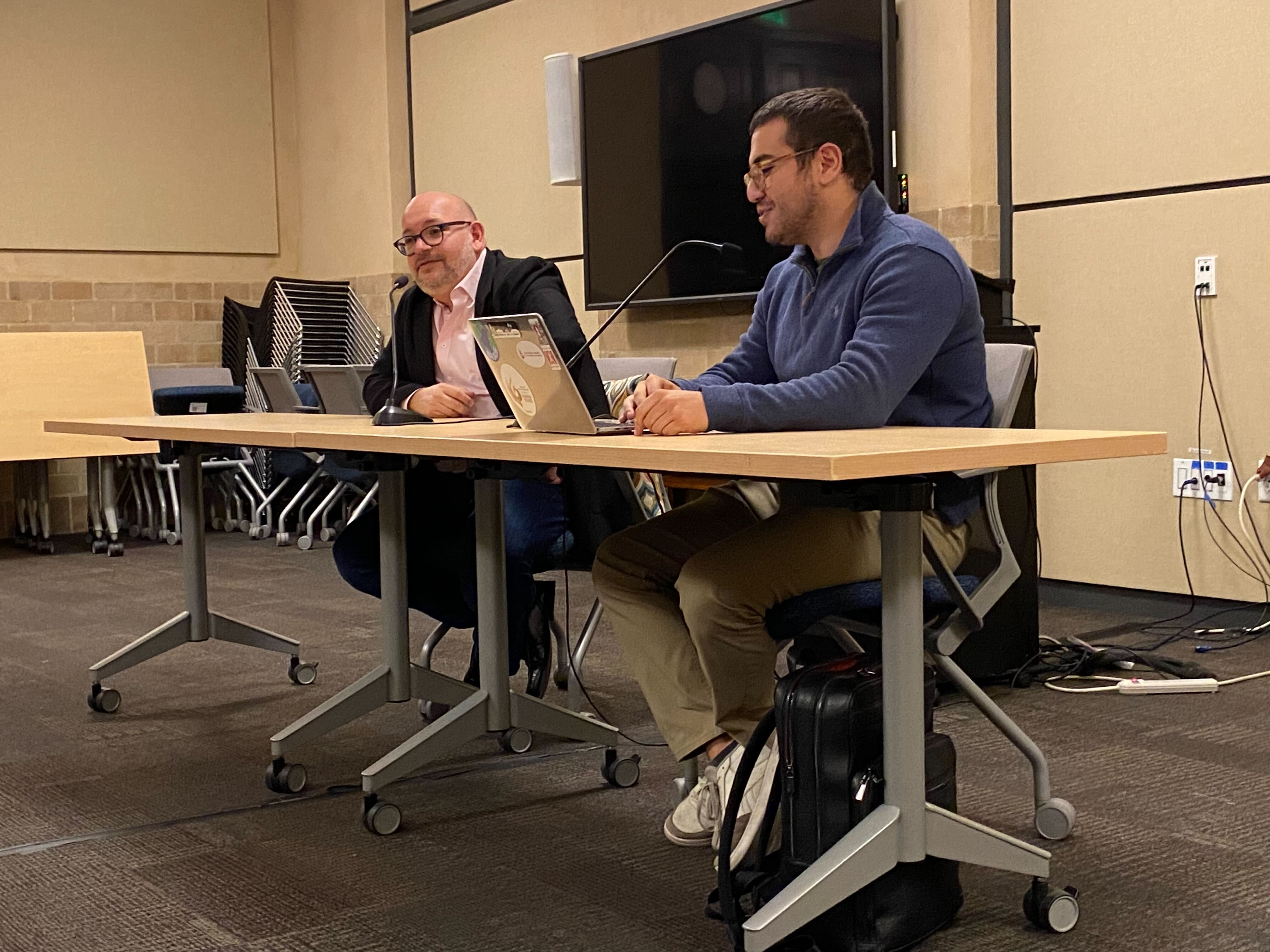Journalist Jason Rezaian was reporting in Iran for The Washington Post when he was arrested alongside his wife, journalist Yeganeh Salehi, in July 2014.
While Salehi was released after a few months, Rezaian was charged with espionage and wrongfully detained for 18 months. Rezaian highlighted humanity and optimism at a Thursday event hosted by the Persian Student Association (PSA) and Stanford Speakers Bureau.
After Rezaian’s release, he published a book about his experiences in 2019 titled “Prisoner: 544 Days in an Iranian Prison.” Although it was initially difficult for Rezaian to relive the traumatic moments of his imprisonment, he tried to consider the perspectives of his captors and find light in darkness, he said.
“The best thing about that is you’re getting to take control of this thing that happened to you, this thing that was done to you, and you can tell the aspects of it that you want,” Rezaian said.
Rezaian added that people have told him he shouldn’t “make light of” his experience. “‘What the hell are you talking about?’” he said. “It’s my life, I can do whatever I want with this story.”
The audience gathered at Encina Commons included aspiring journalists, international relations majors and Iranian students. Sam Samani ’26, president of the PSA, moderated the conversation.
Rezaian, who is Iranian American, grew up in the Bay Area. He said one of his earliest memories is of the 1979 Iranian Hostage Crisis.
“My earliest perceptions of Iran were these people on television who were one-dimensional, angry, burning American flags and spewing all sorts of rhetoric,” Rezaian said.
“My Iranian relatives were talking back to the TV — ‘That’s not us. That’s not who we are,’” he continued. “I hate to say it, but it’s part of who we are. It’s one segment of who we are.”
Rezaian freelanced before joining The Washington Post in 2012 as the paper’s Iran correspondent. Although the U.S. and Iran had ceased diplomatic relations since 1980, Rezaian said he tried not to make the tense relationship the focus of his work.
The last piece Rezaian published from Tehran was about Iran’s national baseball team.
“It was a way to connect with American audiences, to make people feel like they’re not so different from you,” Rezaian said.
Rezaian said he felt as if he had a diplomatic role on top of his journalistic role.
“I wasn’t there speaking on behalf of American or Iranian power. I was talking about the human experience,” he said. “I think there’s much more that binds us than polarizes us. We’re finding it harder to prove that here in this country, let alone with countries that we haven’t been talking to for 45 years.”
Rezaian worked to ensure the safety of his sources in the authoritarian country with state-controlled media — building trust with them and granting them anonymity when he could, in order to protect them. Journalists in Iran also face heavy limitations on travel and must obtain renewed accreditation to travel to different cities. Between 2009 and 2013, when Hassan Rouhani was elected president, Rezaian said he was the only U.S. citizen working as a journalist in Iran with any kind of accreditation.
Rezaian recently joined the Stanford Center for Strategic International Studies as an associate and has been working on a bipartisan team to make security policy recommendations for the next U.S. president, including on Iran-related and hostage-taking issues.
Citing Evan Gershkovich — the Wall Street Journal reporter who was detained in Russia for almost a year and a half before being freed in a prisoner swap in August — Rezaian emphasized the importance of a free press to democracy and expressed concern about the erosion of trust in journalism.
Ellaheh Gohari ’28 and Rania Zuri ’28 said they attended the event because it was an opportunity to learn more about journalism.
Zuri was encouraged by Rezaian’s resilience and optimism despite the harrowing ordeal he experienced in jail. Gohari appreciated that Rezaian didn’t focus on the politics of Iran, adding that his stories about the baseball team or hamburger restaurant owners humanized Iranian people to a country that often views Iran as “an enemy.”
Rezaian made humanity the focal point of his journalism.
“Ultimately, the people in Iran do not have a friend in the U.S. government and do not have a friend in their own government,” Rezaian said. “This is a country that’s pretty much on its own and has been able to survive and sometimes thrive, mostly just surviving because of its own ingenuity and humanity.”
